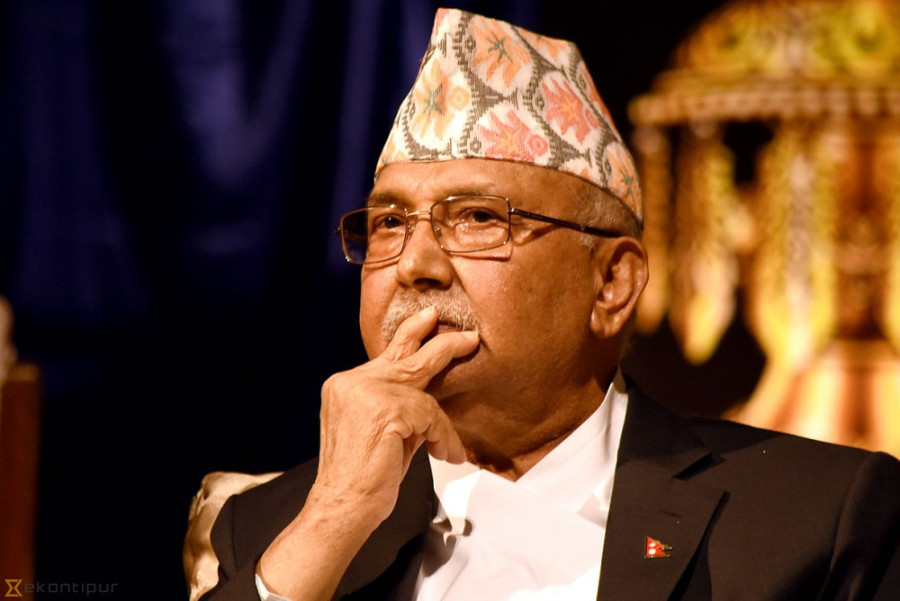Editorial
What a waste
Whatever gloss Prime Minister Oli tries to put on his term, his nine months in office have been a failure.
As the country enters the Nepali new year, it is worth looking back at how little the KP Oli government has to show for its nine months in office. Since he became prime minister in July 2024, public frustration with the government has only grown. There are few signs of the economic revival the new government promised. Another of its big promises centered on amending and updating the new constitution. Again, zero progress on this, too. In fact, if we try to recall what the government has done in this time, only negative examples come readily to mind. It fired Nepal Electricity Authority chief Kulman Ghising even though Ghising, by most estimates, was doing a decent job. (In any case, he was retiring in a few months). There was pressure from the media, the street, the opposition and from within the ruling coalition to let the NEA head be; yet Oli was determined to have it his way. More recently, Vice-Chancellor of Tribhuvan University Keshar Jung Baral had to put in his papers after constant government interference made his task impossible. The federal government also fared woefully in controlling forest fires, making millions of Nepalis choke on dangerously polluted air.
Yet the prime minister has no shame touring the country declaring that his government has done a wonderful job, and dismissing all its critics as sorry losers. But seldom does Oli present any hard evidence of improvement in governance and service delivery, instead spending the better part of his speeches demonising political opponents. Not that there is nothing good happening in the country, even in governance and service delivery. And nor can all recent setbacks in vital sectors like health and education be attributed to the incompetence of the ruling coalition. The cuting of American aid, for example, has disrupted key health initiatives like HIV/AIDS control, programmes to improve maternal and neonatal health as well as others related to the Sustainable Development Goals. Nor can air pollution be cleared overnight. Yet it does not help when the head of the government sounds dismissive of the concerns of his people. The prime minister, in his speech-mode, often sounds more like an authoritarian demagogue than a leader of a powerful democratic government. His acerbic words and hectoring tone divide rather than bring people together.
Top leaders of Nepali Congress, Oli’s biggest coalition partner, are getting frustrated as they feel their concerns over government functioning are being routinely sidelined. Ever ready to pull the rug from under Oli, the leader of the main opposition, Pushpa Kamal Dahal, now says he will unconditionally support a Congress-led government. Signs are that even Nepal’s international friends are struggling to work with the Oli government. But confined within his narrow circle of fawning advisors, Prime Minister Oli does not seem to care what anyone else thinks. Nonetheless, whatever gloss he tries to put over it, these nine months have been a failure. With the prime minister seemingly in no mood for any introspection, the remainder of his term could be no better. At least Oli cannot complain he had not been warned, by his well-wishers and critics alike.




 10.12°C Kathmandu
10.12°C Kathmandu













